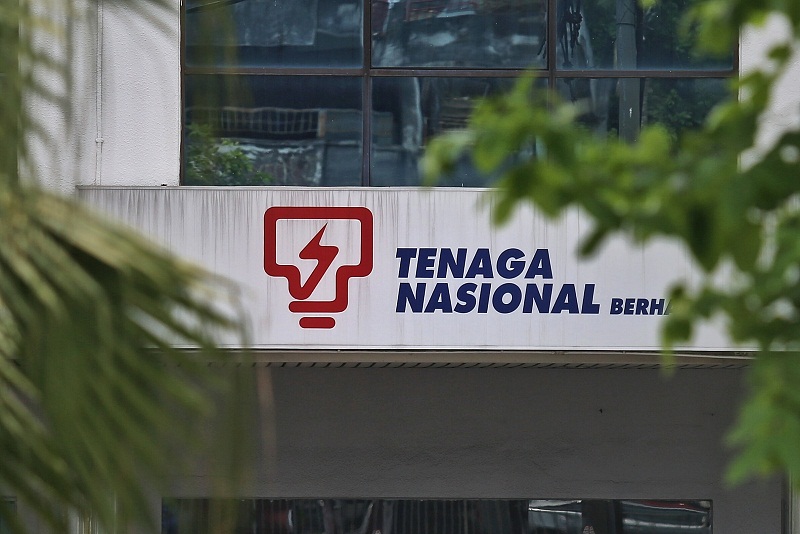KUALA LUMPUR, July 19 — The additional electricity charges for businesses from this month onwards will increase costs which companies may be forced to pass on to consumers, retailers have said.
Datuk Seri Garry Chua, president of the Malaysia Retail Chain Association (MRCA), said it was not the right time to increase electricity charges for business.
“Many of our members have a lot of chains, hundreds or thousands (of outlets), 99 Speedmart, 7-Eleven, so you increase the electricity (cost), all this will pass down the cost of doing business,” he told Malay Mail when contacted.
“If you have many outlets, it will be a big amount,” said Chua, whose association represents over 440 retail chain store operators and franchisors that altogether have over 25,000 outlets nationwide.
“We mustn’t allow the hike at this juncture, especially when the government is trying to lower costs. We shouldn’t allow a rise in the price of electricity, especially not this juncture where the government is implementing zero GST and zero SST, so it’s counterproductive,” he said.
In response to Malaysians’ concern over rising living costs, the federal government had zero-rated the Goods and Services Tax (GST) from June to August, pending its replacement with the Sales and Services Tax (SST) on September 1. This means there will be a three-month tax holiday where the government does not collect tax for goods or services sold.
Tenaga Nasional Berhad, which provides electricity in Peninsular Malaysia, announced last month that a surcharge of 1.35 sen per kilowatt-hour (kWh) will be imposed on commercial and industrial users for a six-month period from July 1 onwards. Residential customers will not have to pay as they are either not affected or the Electricity Industry Fund pays for them, based on their usage levels.
The additional charge is due to higher costs for fuel and power generation for the January 1-June 30 period, with TNB approved by the government’s Energy Commission to pass down the additional cost of RM698.19 million to consumers via the Imbalance Cost Pass-Through (ICPT) mechanism.
The ICPT mechanism was first introduced on January 1, 2014, which allows TNB to reflect either an increase or reduction in fuel and generation costs in the electricity tariff every six months.
Energy, Green Technology, Science and Climate Change Minister Yeo Bee Yin said recently that the impact of the surcharge minus the GST was less than 70 sen for low-voltage commercial users.
Commenting on the increased electricity cost, Chua said it will increase production costs for manufacturers which will be channelled down the chain to shops, shopping malls and ultimately consumers.
“They will pass down to retailers and wholesalers, eventually it will pass down to consumers,” he said, noting: “But over a medium term, I can assure you this will pass down. I’m sure in the next couple of months, this will trickle down.”
“No businessman will want to absorb the cost,” he said.
Biggest cost for shopping malls
HC Chan, advisor of Malaysia Shopping Malls Association, noted the recent increase in electricity charges is a concern as it will drive up business cost.
“There are already calls from various trade associations and federations — with the likes of Federation of Malaysian Manufacturers (FMM) and Malaysian Iron and Steel Industry Federation (MISIF) — for a review or reconsideration,” he told Malay Mail when contacted.
Chan said increases in power tariff will renew pressure and impede the economy’s quick recovery, adding that efforts should instead be focused on ensuring the economy continues to be robust and remains attractive for foreign direct investment.
“In mall operations, utilities cost is the highest contributor to the cost of doing business. Any increase will definitely have material impact to the overall business,” he said.
Chan highlighted other things to watch out for in the second half of this year, including the SST whose impact will depend on how clear the policy will be.
“At this stage, it is still too premature to fully comprehend its implications,” he said. The government has yet to announce the tax rate and scope of SST.
Import cost will also increase with the US dollar on an uptrend against the ringgit at the current tight range of RM4 to RM4.04 to a dollar, he said.
“Coupled with the escalating trade war fear between the US and major economies of China and Europe, (it) can [potentially] erase improved consumer sentiments gained so far,” he said.



















